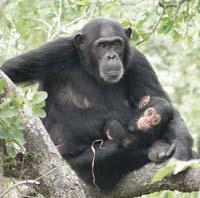Unforeseen developments in the review of the history of AIDS

At the 2008 Evolution meeting held in Minnesota (USA) New data have been given on how and when AIDS appeared. According to them, some of the beliefs that so far were considered quite true have been annulled or, at least, questioned.
For example, a researcher at the University of Arizona has shown that the GIB-1 variant had infected people before schedule. In fact, HIV-1 appears when the SIV virus containing the GIB-1 monkeys jumped into the human being, this being the most widespread variant among the human population. So far it was thought that the jump between species occurred around 1931. However, the researcher genetically analyzed the HIV-1 viruses present in blood samples from 1959 and 1960 and observed that their genomes were much more different than expected. This means that the virus was infected by the human being long ago, as it needs time to evolve. It is estimated that the virus first infected people around 1908. In addition, it has shown that the virus was not very common in XX. Until the mid-twentieth century, it seems that the concentration of the population in cities has had a great influence on the spread of AIDS.
On the other hand, there is another variant in humans, the HIV-2, also from monkeys. By not sickening the monkeys with this precedent of HIV-2, scientists believed that it had been millions of years with the monkeys. Now, other researchers at the same university have compared the genetic trees of monkeys and viruses; if the virus and monkey were together for millions of years, trees should look similar. However, it is not so, and from there it is deduced that this virus appeared about 200 years ago in the monkeys.





